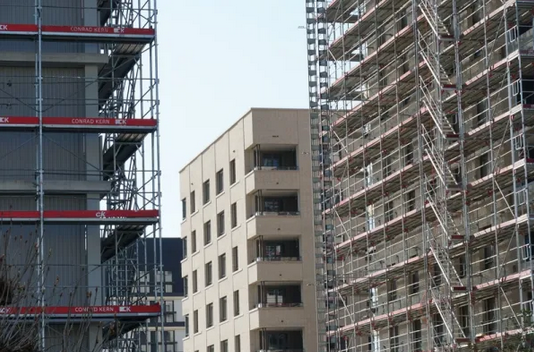Category Archive: 3.) Personal Finance
Retirement age to rise for women in Switzerland
The Swiss government has been looking at measures to shore up the finances of Switzerland’s pension system for some time. The difference between the official retirement age for women (64) and men (65) is an obvious target.
Read More »
Read More »
Number below poverty line rises in Switzerland
In Switzerland, the revenue poverty line is income of CHF 27,108 (US$ 27,490) a year for someone living alone and CHF 47,880 (US$ 48,550) for a family of four. In 2017, the percentage of Switzerland’s population living below the poverty line was 8.2% or 675,000 people. In 2016, the percentage was 7.6%.
Read More »
Read More »
Switzerland number one for expat pay and stability
In 2019, Switzerland came top overall in a ranking of destinations for expatriates to live and work, moving up from eighth last year. Singapore, which had held the top spot for four years in the HSBC’s list of the best countries for expatriates, dropped to second place.
Read More »
Read More »
Swiss health insurance deductibles to remain changeable annually
One idea for containing rising healthcare costs was to remove the possibility of changing health insurance deductibles every year, making it possible only every three years. If people are able to switch from high to low deductibles annually then they can save money by opting for a high deductible one year, while postponing visits to the doctor until the following year when they opt for a low one.
Read More »
Read More »
A family apartment in Geneva close to twice the price of one in St. Gallen
On average, renting a 4.5 room apartment of 100 to 110 m2 costs CHF 3,820 a month in Geneva. The same apartment in the Swiss city of St. Gallen costs CHF 2,004, 52% of the price, according to a report on rents in Switzerland’s ten main cities by the price comparison website Comparis. For an apartment of this size, Geneva (3,820) is the most expensive, followed by Zurich (3,073), Lausanne (2,850), Basel (2,660), Bern (2,600), Luzern (2,430),...
Read More »
Read More »
Income inequality declines in Switzerland
In 2016, before the effects of taxes and welfare, the highest earning 20% of Swiss households made on average 40.8 times what an average household in the bottom 20 percent made, an inequality measure known as the S80/S20. However, after taxes and welfare, including low income support, health insurance subsidies, pensions and disability benefits, the same income ratio fell to 4.4.
Read More »
Read More »
Swiss parliament calls for more online purchases to be taxed
Since 1 January 2019, companies abroad making more than CHF 100,000 in revenue must charge Swiss VAT on sales made to anyone in Switzerland. Now the Swiss government has decided to take aim at online platforms such as Aliexpress and Wish, according to the broadcaster RTS.
Read More »
Read More »
Swiss health insurance deductibles to rise automatically
Today, Switzerland’s parliament decided to bring in a system of regular increases in the deductibles for basic compulsory Swiss health insurance, according to the newspaper Le Matin. However, a plan to raise the the minimum deductible to CHF 500 was rejected by a clear majority.
Read More »
Read More »
Why there is so much egg pasta in Switzerland
Strolling through the pasta aisle of a Swiss supermarket, someone new to Switzerland might conclude that the locals prefer egg pasta over the eggless variety. And, while that might to some extent be true, there is another reason.
Read More »
Read More »
Average Swiss rent barely rises over 7 years
Recently published data show that close to 60% of households in Switzerland rented their home at an average cost of CHF 1,329 per month in 2017. Average monthly rents ranged from CHF 752 for a studio up to CHF 2,323 for 6 rooms or more.
Read More »
Read More »
Swiss unemployment rate rises
There are various ways to measure unemployment. Switzerland’s standard measure looks at the number of people registered with unemployment offices across the country. By this measure Switzerland’s unemployment recently reached a 10 year low of 2.6%. Today, another unemployment measure was published. It shows a 0.1% increase in unemployment over the fourth quarter of 2018 to 4.6% or 227,000 people.
Read More »
Read More »
Switzerland’s federal surplus even larger than expected
In October 2018, government number crunchers revised Switzerland’s federal forecast budget surplus up from CHF 0.3 billion to CHF 2.5 billion. Today, Bern announced that provisional calculations for 2018 now show a surplus of CHF 2.9 billion, CHF 0.4 billion more than last year’s revised figure. The increase was driven by strict spending discipline and higher than expected receipts, according to the press release.
Read More »
Read More »
Nearly Half of Swiss Admit to Stealing
Either at work, at a restaurant, on public transport or in a shop, nearly half of Swiss admit to stealing, according to a survey by moneyland.ch. 49% of the 1,500 questioned in the survey admitted to pocketing something without paying.
Read More »
Read More »
Half of Swiss happy with their finances
A recent survey suggests that half of Swiss residents are satisfied with their financial situation. 6% said they have trouble making ends meet. In addition, 28% expect their finances to improve in 2019. Fewer women (25%) are optimistic than men (33%). 18% expect their finances to worsen and 54% expect no change.
Read More »
Read More »
Swiss unemployment lowest in 10 years
Switzerland’s unemployment rate, now 2.6%, hasn’t been so low for 10 years, according to the latest figures from Switzerland’s State Secretariat for Economic Affairs (SECO). A weakening of the Swiss franc helped boost Switzerland’s economic growth, creating more jobs.
Read More »
Read More »
Question of the week: do we still need a standard retirement age?
Reaching the official retirement age1 is an important milestone for many people. Some look forward to it while others dread it. Some dreading it would prefer to continue working either because they enjoy their work or would like the extra income. Some feel they are being systematically and unfairly labelled too old to work.
Read More »
Read More »
VAT now applied to most foreign online shopping from 1 January 2019
In 2016, Switzerland’s government decided to tighten the VAT exemption on imported purchases, a move that affects most online orders from foreign retailers. The new rules took effect on 1 January 2019 – they were originally planned for 1 January 2018 but systems and processes were not ready.
Read More »
Read More »
Switzerland’s electronic motorway vignette to be optional
This week, Switzerland’s Federal Council decided the planned electronic motorway vignette will be optional. Drivers will be able to choose. Anyone wanting to drive on Switzerland’s motorway network must first buy a vignette, a road tax sticker introduced in 1985, which must be displayed on the windscreen. It currently costs CHF 40.
Read More »
Read More »
New Swiss broadcasting fee starts next year
After a referendum in March 2018 threatened to axe Switzerland’s costly broadcasting fee, the government put forward a counter proposal, which was adopted when 71.6% of voters voted to keep the fee. On 1 January 2019, the lower fee contained in the government’s plan will come into force. Next year, instead of CHF 451, each household will need to cough up CHF 365.
Read More »
Read More »
Swiss Divorce Rates Continue to Climb
By 2017, 40.5% of those married in 1987 were divorced, compared to 33.2% of those married in 1977 and 24.7% of those married in 1967. Divorce in Switzerland starts early. 9.4% of those married in 1987 were divorced after five years, as were 8.1% of those married in 1977 and 4.8% of those who tied the knot in 1967.
Read More »
Read More »


























































